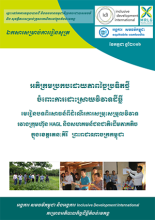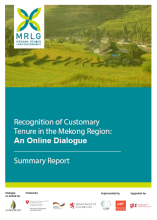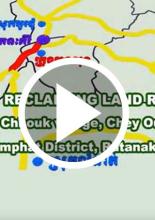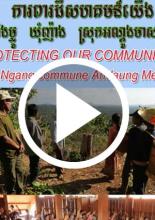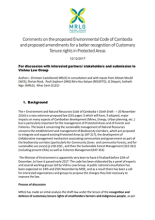Land Library
Welcome to the Land Portal Library. Explore our vast collection of open-access resources (over 74,000) including reports, journal articles, research papers, peer-reviewed publications, legal documents, videos and much more.
/ library resources
Showing items 1 through 9 of 12.This Case Study looks at the implementation of the Vacant, Fallow and Virgin Lands Management Law (VFV Law) in seven villages in Sagaing Region, to assess the practices on the ground and how the law impacts the land tenure security of smallholder farmers.
The Mekong Region Land Governance (MRLG) project, MLIKE (Mekong Land Information and Knowledge Exchange), and the Land Portal co-facilitated an online dialogue on “Responsible Large Scale Agricultural Investments in the Mekong Region” on 09-27 October 2017.
In the Mekong region, conflicts between local communities and large scale land concessions are widespread. They are often difficult to solve.
The NGO Forum on Cambodia, in cooperation with the Ministry of Agriculture, Forests and Fisheries, organized a national consultation workshop on 19-20 December 2016 on the sixth version of the draft Cambodian Agricultural Land Law.
This dialogue provided a way for the land community to collaboratively explore challenges and opportunities related to the recognition of indigenous, ethnic minority and customary tenure rights in the Mekong region in order to:
This video is part of one of the major activities of the L&A initiative “Collective Learning on Land Conflict Resolution” in Cambodia. It shows how successfully the participatory resolution of land conflict by the villagers in Sre Chhuk village in Lumphat district has been managed.
This video is part of one of the major activities of the L&A initiative “Collective Learning on Land Conflict Resolution” in Cambodia. It shows how important the solidarity of villagers is important to prevent land grabbing.
The « Environment and Natural Resources Code of Cambodia » (Sixth Draft – – 20 November 2016) is a very extensive proposed law (535 pages !) which will have, if adopted, major impacts on many aspects of Cambodian development (Mines, Energy, Urban planning, etc..) but is particularly important for




